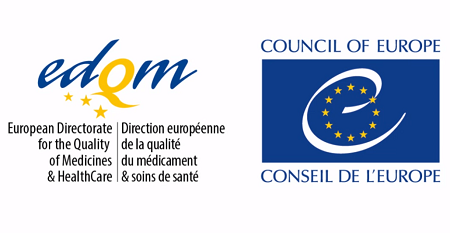On November 21-22, 2023, the 177th meeting of the European Pharmacopoeia Commission (EPC) was held in Strasbourg, France, in which Natalia VOLOVYK, Deputy Director for Quality of the Ukrainian Scientific Pharmacopoeia Center for the Quality of Medicinal Products participated via videoconference.
Delegates approved revised versions of the Commission’s Rules of Procedure and the Guide for the Work of the European Pharmacopoeia.
During the meeting, a request for observer status in the EPC from the Egyptian Drug Authority was considered. The request was unanimously supported by the representatives of the delegations of the member states of the European Pharmacopoeia.
The advantages and disadvantages of the existing methods of decision-making by the Commission were discussed, as well as the expediency of involving observers, heads of working/expert groups of the European Pharmacopoeia, and the public in solving some issues, such as the introduction/withdrawal of monographs from working programs.
The EPC Presidium emphasized the importance and necessity of applying sustainability initiatives by the European Pharmacopoeia. One of the steps in this direction is the discontinuation of the publication of paper versions of the pharmacopoeia, starting with the 12th edition, and the transition to an online format.
It was also noted that there is a need to select a gender equality reporter from among the members of the Commission and outline his tasks and functions.
In addition, the appropriateness of introducing or removing a number of monographs from the European Pharmacopoeia was discussed. In particular, the strategy for withdrawing the texts on Histamine (2.6.10) and Depressor substances (2.6.11) was discussed, as tests on animals are outdated, nonspecific, non-reproducible, and unethical, as well as taking into account the experience of other leading pharmacopoeias (USA, Japan, and International Pharmacopoeia). Fourteen monographs, either referring to 2.6.10 or containing a general statement in their Production section, which is a remainder of the test, thus need to be revised. This decision is another testament to the Commission’s ongoing efforts in the field of animal protection. At the same time, the EPC agreed to develop a new general chapter dedicated to the detection of histamine by physicochemical or immunochemical methods in fermentation products.
The feasibility of developing monographs on cannabis extracts based on preparations that are not licensed but are allowed for medical use in some European countries was also discussed. 15 representatives of the delegations of the member states of the European Pharmacopoeia, including Ukraine, supported this initiative, 3 delegates spoke against and 3 abstained. Since the situation with the legalization of cannabis in European countries is rapidly changing, the EPC decided to conduct an additional survey regarding the inclusion of the development of the corresponding monograph in the work program at the next session. Preliminarily, after discussing the issue at this session, the delegates supported the initiative of developing a draft monograph on a standardized cannabis extract.
The European Pharmacopoeia Commission approved the introduction of 77 monographs in Supplement 11.6 of the European Pharmacopoeia, including 9 new individual monographs (implementation date: January 1, 2025). The monograph on Propylene Glycol (0430) was revised in response to the public health risk associated with the detection of ethylene glycol (EG) and diethylene glycol (DEG) contamination in several medicinal products in African and Asian countries (WHO alerts No. 6-7/2022, No. 1/2023, and No. 4-6/2023). Further updates to the monograph include an identification test using infrared (IR) spectrophotometry and a modernized procedure for the Acidity test. The monograph was preliminarily published on the website of the European Directorate for the Quality of Medicines & HealthCare (EDQM) to inform users in advance about upcoming changes.
There was also an agreement to look closer into the potential review of monographs on substances at risk of adulteration with EG and DEG and to reach out to international stakeholders on this issue.
The strategy for N-nitrosamines in individual monographs was also discussed.
Reports on the meeting of the Pharmacopoeial Discussion Group (October 3-4, 2023), the 14th International Meeting of World Pharmacopoeias (November 8-10, 2023), scientific events held from June 2023, and the conference plan for the next 3 months were heard. The WHO representative presented a report on the 57th meeting of the Expert Committee on Specifications for Pharmaceutical Preparations, which took place from October 9 to 13, 2023.
Based on preliminary voting, changes to the working programs of expert groups (additions and exclusions) were proposed, which were adopted by the Commission. The results of the certification of a number of reference standards were also approved.
Candidates nominated by the national pharmacopoeia secretariats for work as experts and heads of expert/working groups were approved. In particular, from Ukraine, Prof. V. Georgiyants was elected to the working group on the development of the European Drug Shortages Formulary (EDSForm), and Dr. V. Petrus to the expert group on Medicinal products containing chemically defined active substances (Exp. gr. 17), replacing Yu. Lytvynov.
The next session of the European Pharmacopoeia Commission is scheduled for March 19 and 20, 2024.



